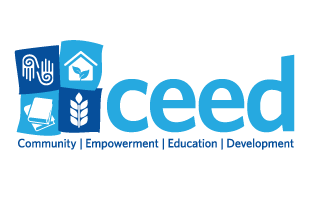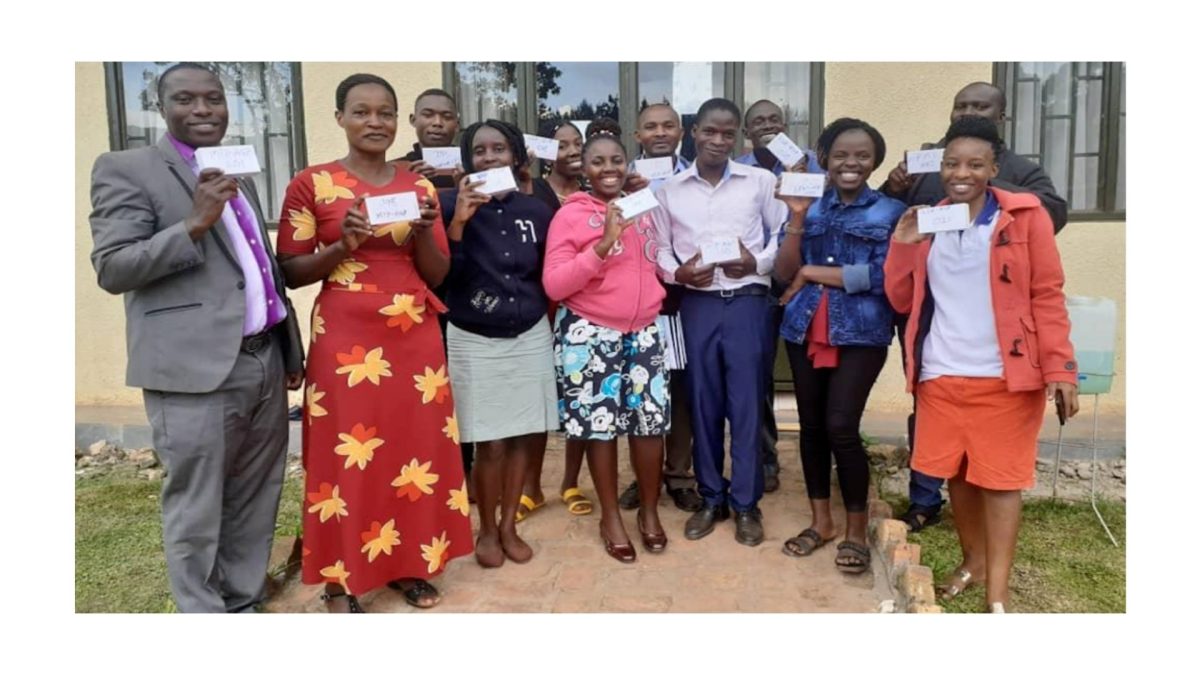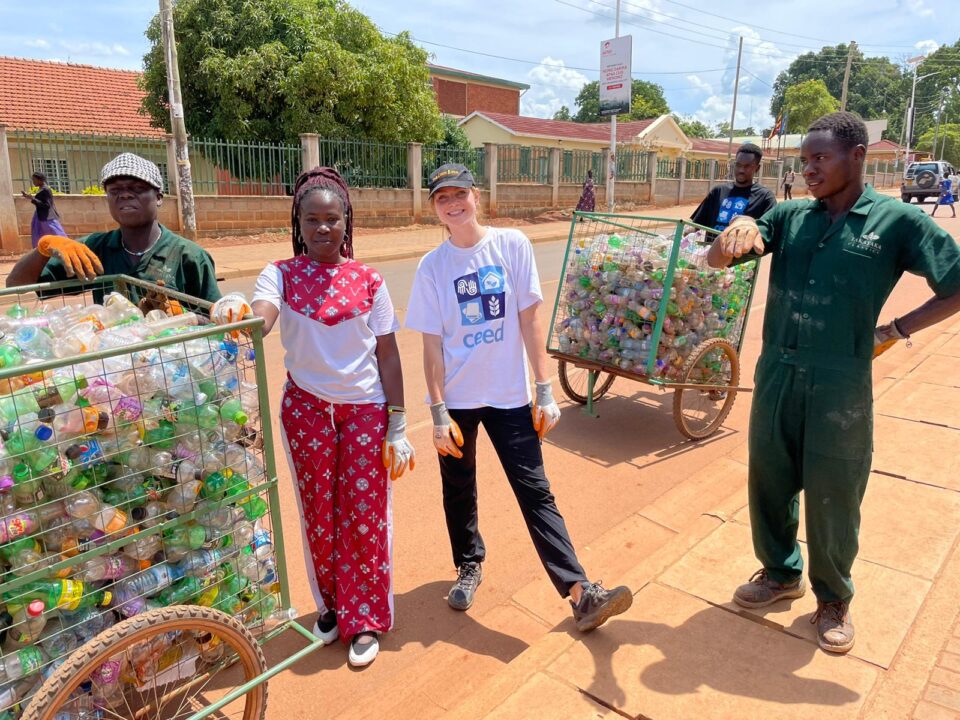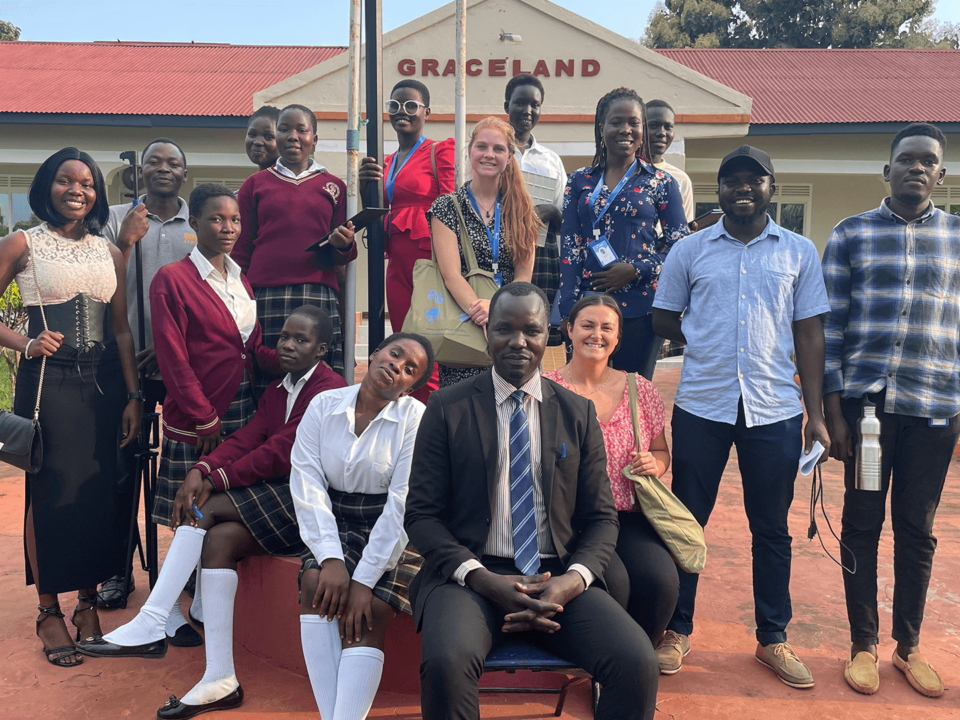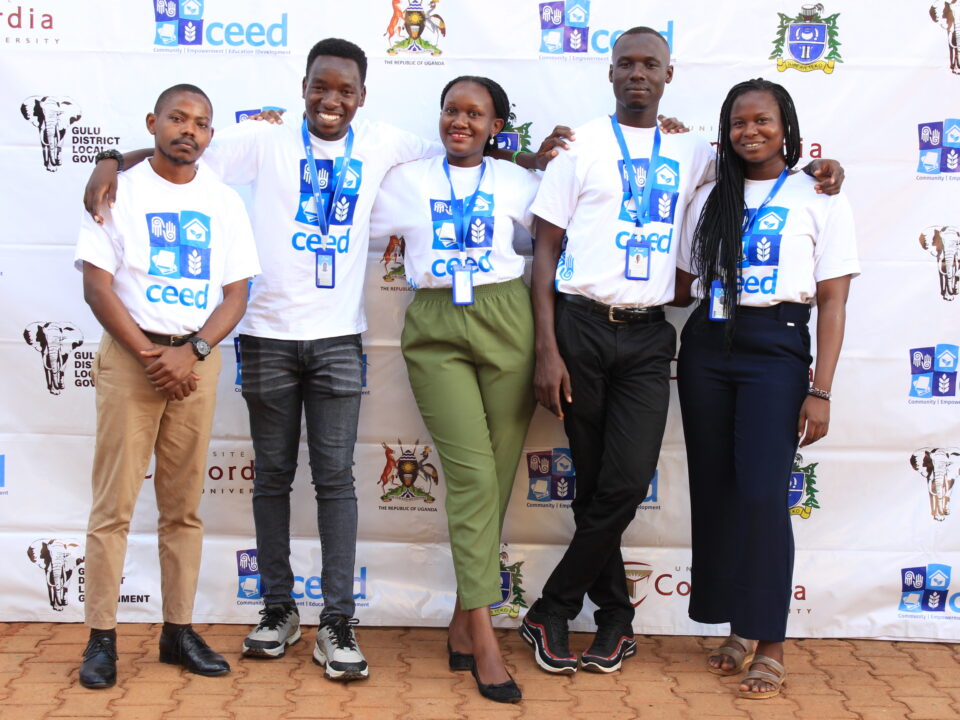
CEED Concordia Annual General Meeting 2022
June 14, 2022
The CEED Concordia Internship is Back!!
January 22, 2023This article has been written by Julian Sabiiti, CEED Concordia Project Assistant based in Kabale, Uganda.
What is this innovation about?
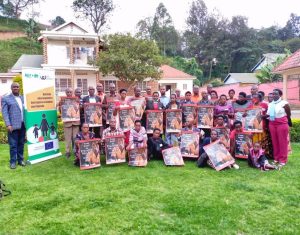
Participants posing for a photo after completing one of the ACFODE training on GBV.
CEED Concordia, in partnership with Kabale University, Action for Development ACFODE, and the Canadian Institute of Mass Communication (CIMC), is using a new e-learning innovation to promote gender equality in education in Uganda by giving female in-service teachers the opportunity to further their education using technology. It makes pursuing higher education very convenient because the education is offered remotely. The project is funded by Fund for Innovation and Transformation and has been running for seven months now.
We are excited to share how far along it has come and the impact that it is having on the target communities within the South-Western region of Uganda!
The partners and their roles:
- Kabale University is an academic institution driving the learning process.
- Canadian Institute of Mass Communication (CIMC) are the technology experts.
- Action For Development is an expert in Ugandan women’s rights and gender equality.
What is the progress so far?
Through inter-organization teamwork, CEED and its partners continue to take steps toward our end goal. Kabale University and CIMC have worked together and seen to every detail concerning learning:
- Video Instructor Training workshops for lecturers of Kabale University so they could develop content for students.
- Production of the study material in form of videos.
- Admission and registration of a total of 109 students. Out of the total number of students, 62 of them are women.
- E-learning training for all enrolled students.
- Distribution of MP4 players that have content for Year One Semester One, along with portable solar panels for charging these gadgets, to all enrolled students.
- Creation of study centers in three of our target districts.
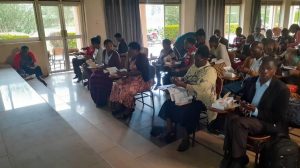
Training for in-service teachers to know how to use MP4 and Solar Chargers.
ACFODE and CEED have created awareness of both the blended learning innovation and gender equality issues. Media campaigns and research activities have helped to better understand community perceptions. Such activities have included radio talk shows, interviews with community members, male engagement training and distribution of IEC promotional materials such as fliers. These have been focused on Gender-Based Violence (GBV), equal opportunities and the value of women’s participation in education. These activities have also helped to shed light on what issues need to be tackled to give women better opportunities to further their education.
What do the stakeholders have to say?
Dr. Conrad, one of the focal people at Kabale University says, “Initially the teachers were sceptical about using technology and had assumed they needed to use the internet to study. They are now settling in and finding it convenient!”
He also shared that because all Educational Lecture Videos (ELVs) and associated reading material for one semester can be loaded onto the mobile devices at once, teachers do not have to make trips back and forth. They can stay in their homes and still study full time.
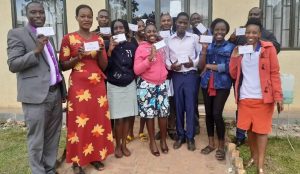
Some of the students at Kabale University after receiving the mobile gadgets with Year 1 Semester 1 content.
From ACFODE, Happy says there has been a noticeable attitude change between when the project had just been introduced and the present times. “Through radio talk shows, training and promotional materials such as fliers, communities are beginning to appreciate better the socio-economic role that women can play and why they should pursue higher education.”
Sylvain from CIMC, based on the data collected within communities, complimented Happy’s comments, saying that we have already surpassed our targets in the area of attitude change.
One of the students enrolled on the program says; “I think an educated woman is an empowered woman and therefore an opportunity for women to further their education in a way that is convenient for them is a big step.”
You can also find the following article from Kabale University to know more about this project: https://news.kab.ac.ug/kabale-university-takes-learning-to-learners/
